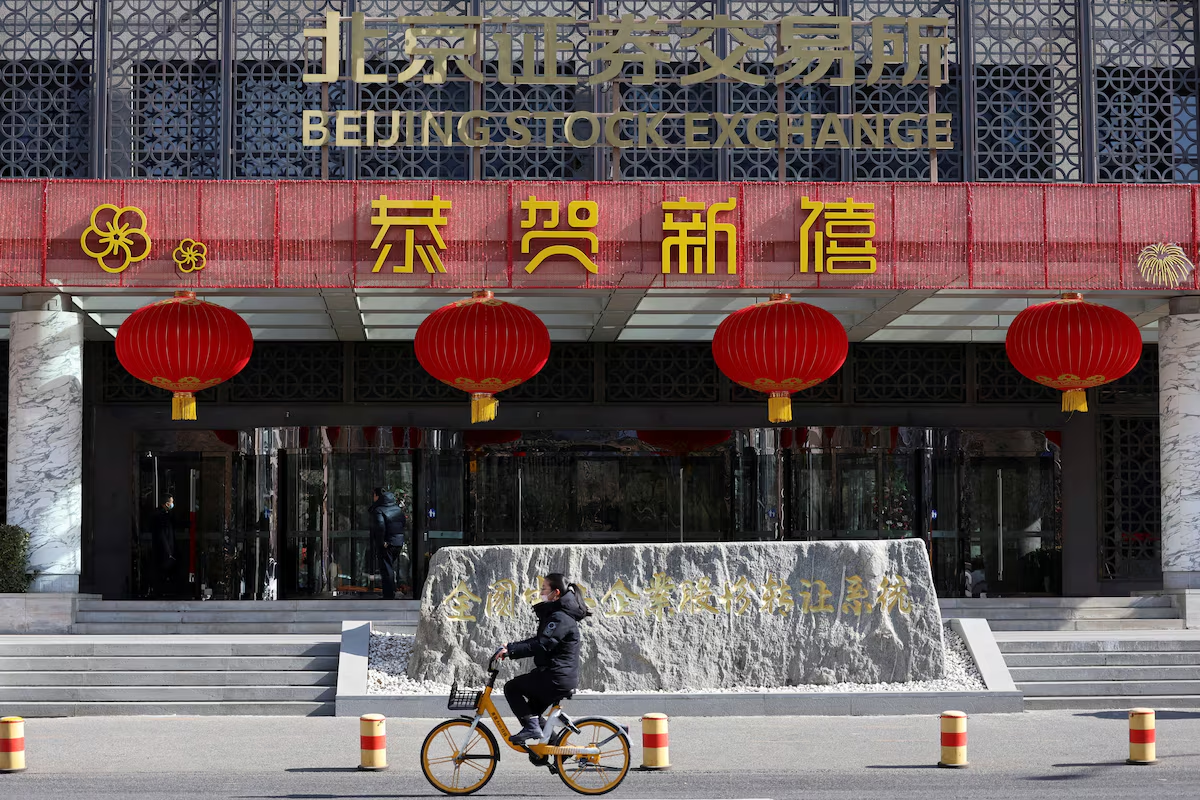Asian stock markets surged on Tuesday, buoyed by another strong session on Wall Street and renewed investor confidence in China’s economy. The rally came as fresh U.S. economic data eased recession fears, while Chinese tech stocks powered another impressive upswing in Hong Kong.
Investor sentiment received a lift after Beijing announced a series of measures over the weekend aimed at revitalizing consumer spending. While the details of these policies remain limited, they have already injected optimism into the market.
Adding to the momentum, U.S. retail sales data released on Monday showed weaker-than-expected growth last month. However, a separate economic indicator used to gauge overall GDP growth exceeded forecasts, reassuring investors that a slowdown might not be imminent.

Hong Kong’s Hang Seng Index, which has already gained more than 20% since the beginning of the year, climbed another 2.2% on Tuesday. The surge was driven by strong buying in major Chinese tech firms, including Alibaba, Tencent, and JD.com.
READ ALSO: Russia Claims to Downed 46 Ukrainian Drones in Overnight Attack
Electric vehicle giant BYD was another standout performer, jumping more than 6% at one point after unveiling new battery technology that reportedly charges in just five minutes—a potential game-changer in the EV market.
Markets across Asia followed the upward trend, with major indexes in Shanghai, Tokyo, Sydney, Seoul, Singapore, Taipei, Mumbai, and Bangkok all posting gains.

However, Jakarta’s stock exchange faced a major setback, plunging more than 7%—its steepest intraday decline since 2011. The sharp drop was fueled by concerns over Indonesia’s weakening economy and sluggish consumer spending ahead of the Eid holiday.
READ ALSO: Harvard Expands Financial Aid: Free Tuition for Families Earning Under $200,000
The Indonesian market has already lost over 10% this year, and investors are now watching the country’s central bank closely as it prepares to announce its latest policy decision on Wednesday.
The Asian rally mirrored Wall Street’s recent gains, where stocks have bounced back after a rough month dominated by fears over Donald Trump’s tariff policies. Investors remain cautious, as new U.S. trade levies are set to take effect as early as April 1.

Stephen Innes of SPI Asset Management warned traders against becoming too complacent, writing:
“Don’t get too comfortable—nervous eyes remain locked on Washington’s tariff tumult. The storm is far from over, and with the next escalation looming, the market is still walking a fine line between optimism and another sharp reality check.”
READ ALSO: Gold Prices Hit Record High Amid Rising Trade Tensions
Lingering uncertainty around tariffs, coupled with rising tensions in the Middle East—following Israeli airstrikes on Gaza—has pushed investors toward safe-haven assets. As a result, gold prices hit a record high of $3,017.66 on Tuesday.
Looking ahead, investors are eagerly awaiting key policy decisions from the Federal Reserve, the Bank of Japan, and the Bank of England this week. While none of these central banks are expected to change interest rates, the Fed’s statement will be closely scrutinized for its outlook on the U.S. economy.

According to HSBC economist Ryan Wang, while no major shifts are expected in the Fed’s stance, any adjustments are likely to lean toward a more pessimistic outlook, reflecting concerns over tariffs, tax cuts, and broader economic uncertainty.
While Asian markets are enjoying a strong start to the week, underlying risks remain. The global economy continues to grapple with geopolitical tensions, trade uncertainty, and shifting central bank policies.
Discover more from Scoop Hub
Subscribe to get the latest posts sent to your email.

